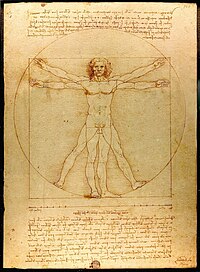Theistic humanism
| Part of a series on |
| Humanism |
|---|
 Leonardo da Vinci's Vitruvian Man (c. 1490) |
| History
|
| Forms
|
|
|
Theistic humanism is the combination of humanistic ideals, particularly the idea that ideals and morals stem from society, with a belief in the supernatural and transcendental.[1][2]
It is frequently invoked as a form of spiritual opposition to monotheism.[citation needed]
In African philosophy
In Southern Africa, indigenous humanism is popularly associated with the Ubuntu philosophy, and its fusion with Traditional African religion is often referred to as Theistic Humanism.[3][4] Ubuntu asserts that society, not a transcendent being, gives human beings their humanity. This form of theistic humanism has frequently been associated with opposition to globalisation.[citation needed]
References
- ^ Mace, Emily (October 15, 2014). "Theistic Humanism". Harvard Square Library.
- ^ "Optimistic Secular Humanism | Xenos Christian Fellowship". www.xenos.org.
- ^ Gade, Christian. "What is Ubuntu? Different Interpretations among South Africans of African Descent" (PDF). Aarhus University. Retrieved 2020-07-10.
- ^ Ani, Emmanuel Ifeanyi (April 1, 2018). "Theistic humanism and a critique of Wiredu's notion of supernaturalism". Critical Research on Religion. 6 (1): 69–84. doi:10.1177/2050303217732134. S2CID 171751046.













